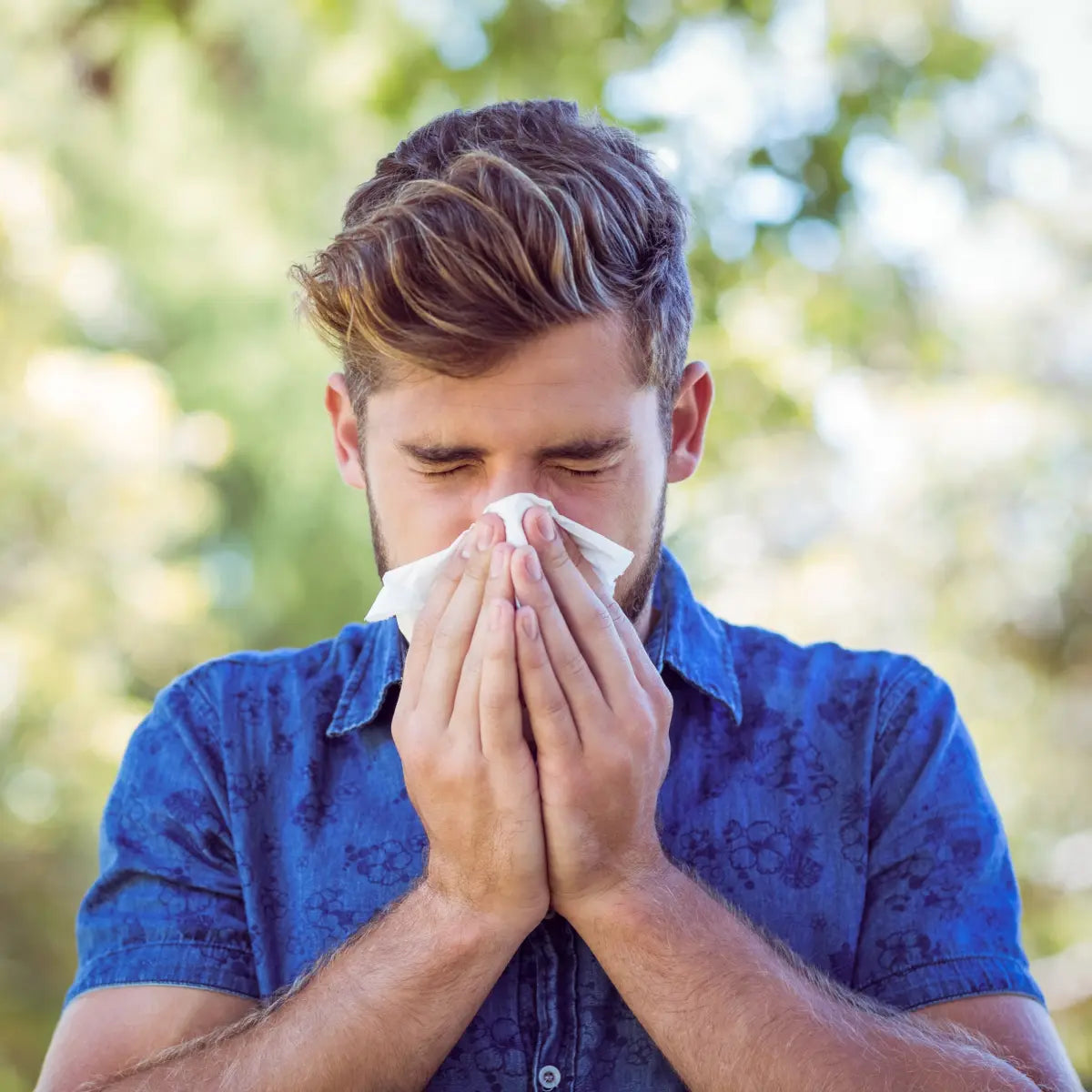
Wellness Guide
Allergies and intolerances

Allergies and intolerances: how to recognize them
Allergies are exaggerated responses of the immune system to normally harmless substances, called allergens. These reactions can be triggered by pollens, foods, drugs, animal hair, mites, latex and many other substances present in the environment or in the daily diet. Symptoms vary from mild, such as sneezing and itching, to severe, such as anaphylactic shock. Allergies manifest themselves in two phases: initially with sensitization, when the body recognizes the allergen as an "enemy" and produces antibodies; subsequently, with repeated contact, the actual allergic reaction is triggered.
Factors / Motivations
Genetic predisposition
Genetic predisposition
The tendency to develop allergies can be hereditary. If one or both parents suffer from them, the likelihood that their children will also be allergic increases.
Environmental exposure
Environmental exposure
Factors such as pollution, pollen, mold, mites and unfiltered indoor air can aggravate or trigger allergies, especially in predisposed individuals.
Nutrition and lifestyle
Nutrition and lifestyle
A low-variety diet, rich in ultra-processed foods and poor in nutrients can increase immune reactivity. Smoking, a sedentary lifestyle and stress also have a negative impact.
Age and climate change
Age and climate change
Allergies can occur at any age, but are more common in children. Global warming has extended the pollen season, making symptoms worse for many people.


Flomel® 500
Targeted support for your inner lightness.
Flomel® 500 promotes the drainage of excess fluids and supports the functionality of the microcirculation. It is useful when you feel swelling, heaviness in your legs or you want to give them lightness. A simple gesture, every day, to find well-being and feel freer in your movements.
Suggestions
Identify and avoid allergens
Identify your allergens through specific tests. Avoid environments or foods that contain them, such as seasonal pollens, mites or sensitizing foods.
Improving the home environment
Use HEPA filters, dehumidifiers, and limit carpets and curtains. Ventilate spaces and clean frequently to reduce exposure to allergens.
Drugs for symptom management
Antihistamines, decongestants and cortisone, if prescribed, can help control symptoms. Always consult a doctor for targeted therapy.
Specific immunotherapy
Indicated for respiratory allergies, it consists of gradual exposure to the allergen to increase tolerance. It is performed under medical supervision.
Continuous medical support
Consult a specialist to monitor the evolution of symptoms and update the treatment plan. Regular check-ups improve the quality of life.

Allergies under control, wellness in the foreground
Living with allergies and intolerances can be challenging, but it is not impossible. Knowing your allergens, adopting a balanced lifestyle and receiving support from qualified professionals are fundamental steps to reduce symptoms and prevent complications. A conscious and personalized approach allows you to better manage your daily life, improving well-being, autonomy and serenity.

